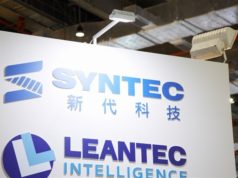![]()
Facing increased competition for very-high-speed Internet access, AT&T is expanding the rollout for its service. As many as 100 cities and towns are in the new plan, including Chicago, Los Angeles and San Francisco.
AT&T’s fiber service can offer speeds up to 1 gigabit a second. Many of the targeted areas are also covered by competitors Comcast and Time Warner Cable. Their $ 45 billion pending merger is a big incentive for AT&T to get its areas wired, and customers settled, before the new giant fully gears up.
A senior executive vice president at AT&T Home Solutions, Lori Lee, told The Wall Street Journal that the competition from Comcast/Time Warner would make a tougher competitor out of AT&T.
Google’s Rollout
Additionally, Google is conducting a smaller rollout of gigabit-speed fiber-based Internet service in Austin, Texas and Kansas City, Kansas, among others. Google has said it is also looking at dramatically expanding its rollout.
The Google-AT&T competition for very-high-speed fiber may just be heating up. Reports indicate that AT&T is considering bringing its high-speed fiber network to Nashville, one of the areas that Google is considering for expansion, and AT&T has now targeted Kansas City.
AT&T’s plans are to begin deploying the high-speed service in at least some of the expanded rollout areas by the end of this year. Most of the added cities already have AT&T U-verse service for Net and TV, which uses fiber to the curb and then copper for the final leg into homes and businesses. The expanded rollout, in addition to laying new fiber to the curb, is also intended to replace the existing copper lines.
Charter, Hotspot 2.0
The Comcast/Time Warner competition is still very much a moving target. According to a report in Monday’s Financial Times, the two companies could sell between 3 million and 5 million customers to Charter Communications. That move would be intended to help ease the way for federal regulatory approval, by lessening Comcast/Time Warner’s share of the market.
According to Comcast, those subscribers are worth at least $ 17 billion. Charter is the fourth-largest cable company in the U.S., and it had previously made its own offer for Time Warner Cable, but Time Warner management was not interested.
In addition to wired services, the soon-to-be-one companies are also pushing Wi-Fi hotspots. Time Warner has switched on its Hotspot 2.0 service throughout its public Wi-Fi network, which offers the ability for customers to connect without re-entering log-ons.
The idea is that, like cellular technology, public Wi-Fi should automatically recognize and log-on to devices that have already established access. Hotspot 2.0 has not yet caught on among providers, although the Wi-Fi Alliance began certifying devices for the spec about two years ago. Time Warner would be the first large implementation.
NewsFactor Network







